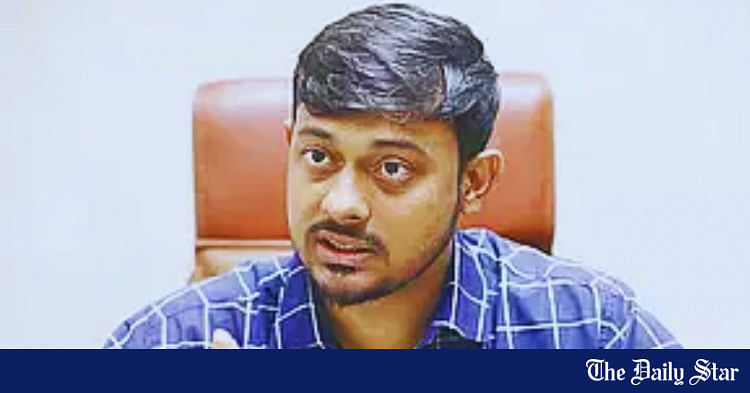NCP says reforms, trials must before polls
Nasiruddin Patwary. File photo
“>
Nasiruddin Patwary. File photo
Four political parties and an alliance have welcomed the agreement between the government and BNP that the election could be held a week before Ramadan, which would be in February.
Four political parties and an alliance have welcomed the agreement between the government and BNP that the election could be held a week before Ramadan, which would be in February.
The National Citizen Party, however, said in a statement last night that the government appeared to be prioritising a particular party’s demands regarding the election.
“While the discussion regarding the election timing received significant attention at the meeting, the key demands of citizens in the post-uprising Bangladesh, namely justice and reform, were not given the same importance. The National Citizen Party finds it extremely frustrating,” reads the statement.
If the election is held before a July Charter and clear roadmap to trial for the atrocities committed during the mass uprising, then the polls will reduce the uprising to a mere power transition and suppress people’s desire for rebuilding the state.
“If the government announces an election date before fulfilling these demands, the people will not accept it,” it adds.
The NCP urged the government to reach consensus on reform issues through discussions with political parties, and to formulate and implement the July Charter.
Jamaat Assistant Secretary General Ahsanul Mahboob Zubair told The Daily Star that the election should only be held after the adoption of the July Charter, the implementation of reforms, and the trial of those responsible for the killings during the July uprising.
“Moving towards the election will not be possible without fulfilling these conditions,” he said.
The Jamaat believes that the necessary reforms must be done before the election, he added.
The party had earlier stated that it did not see any problem if the election were held two or three months earlier as long as the goals of reforms and trials had been achieved.
“Necessary reforms are more important than the date or month of the election. If the reforms are not carried out, we will be heading back towards fascism. And there must be justice,” said the party.
Jamaat leaders last night said they would share their stance when the Election Commission formally announces the polls schedule.
Chief Adviser Muhammad Yunus and BNP acting chairperson Tarique Rahman held the much anticipated meeting in London yesterday.
Islami Andolan Bangladesh spokesperson Gazi Ataur Rahman in a video message said the meeting had been able to avert a crisis and end the uncertainty in national politics.
He hoped that political parties would accept the decisions made at the meeting and prepare for a fair election.
The Ganosamhati Andolon has called the meeting a step towards resolving the political crisis.
“Following the chief adviser’s speech before Eid, we stated that the decision to hold elections in early April was not realistic. We view today’s meeting as a positive development,” said the party in a statement.
The Jatiya Samajtantrik Dal termed the meeting a “significant milestone” towards political stability and national unity.
In a statement, JSD President ASM Abdur Rob and General Secretary Shahid Uddin Mahmud Swapan welcomed the leaders’ agreement that the next general election can be held before Ramadan 2026.
They also are of the opinion that the election must be preceded by visible progress on structural reforms and justice for the victims of July atrocities.
The JSD also called for immediate steps to formulate a National Charter aimed at overhauling state structures through inclusive participation of political parties, professionals, and working class people.
Saiful Haq, general secretary of the Biplobi Workers Party, said political uncertainty over the election seemed to have eased following the meeting.
He said the climate had been confrontational in recent months, putting the electoral process at risk.
“Now that both sides have agreed on a February timeline, we’re seeing signs of a breakthrough,” he said, adding that the Election Commission must announce the polls schedule.
The 12-party alliance, known as a BNP ally, termed the meeting a “relief for the nation and a milestone on the road to democracy”.
The alliance said the consensus on holding national elections before Ramadan had eased public anxiety and offered hope for a peaceful transition.
The alliance issued a statement, thanking Prof Yunus for shifting from his proposed April timeline and aligning with February for polls.
“This meeting must not remain symbolic,” the leaders said. “Visible steps must follow on institutional reforms.”
The Rashtra Sangskar Andolan, a platform of political commentators, said that while the understanding on election timing was desirable, failure to reach an understanding on constitutional reform would be a “betrayal to the martyrs” of the July uprising.
It also expressed disappointment that the joint statement issued after the Yunus-Tarique meeting made no mention of state or constitutional reforms.




